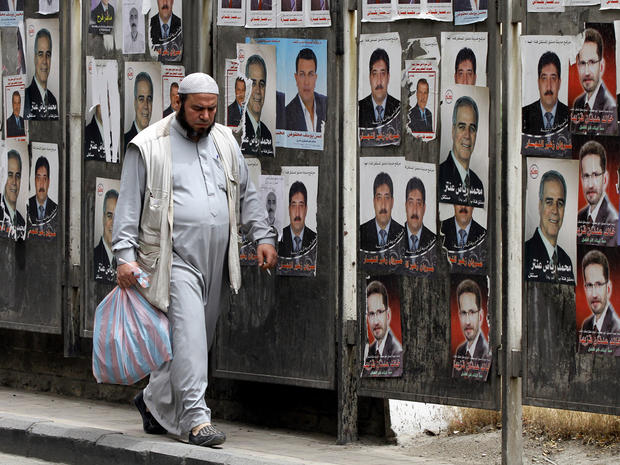Syria holds 1st multi-party elections, opposition boycotts vote as a sham
(CBS News) DAMASCUS, Syria - Amid a shaky truce and calls from the opposition to boycott the vote, Syrians headed to the polls Monday to cast ballots in the first multi-party parliamentary elections in five years, as President Bashar Assad's government sought to show it is providing space for a nascent political opposition in the restive country where thousands have been killed in a 13-month uprising.
The leading opposition group dismissed Monday's vote as a sham - an attempt by an obstinate Assad to prolong his rule - which they say will likely be rigged heavily in his Baath party's favor. Opposition activists said they would observe a general strike and themselves boycott the voting.
In spite of cries that any vote carried out under the threat of violence cannot be legitimate, polling booths opened for what will be the latest step in a process of limited political reform heralded by President Assad in response to the uprising, which began as a series of peaceful protests but quickly descended into violence in the face of a brutal assault on opposition strongholds by his forces.
Many opposition figures and groups insist no reform measures can be accepted until Assad himself steps down from power. Assad, and his father before him, have ruled Syria since 1963.
In the first serious challenge to that rule, the uprising has increasingly turned into a militarized campaign to topple Assad - with tacit backing from the U.S. and much more material support from nations on his own doorstep.
White House admits Syria strategy not working
Syrian forces raid university dorm, kill 4
Complete coverage: The Arab Spring
The regime held a referendum on a new constitution in February, claiming 89 percent of the vote in a poll that opponents condemned as grossly flawed and unfair, given the government's shelling of the central city of Homs and other opposition-held areas at the time.
Monday's elections are the third time a legislative vote has taken place in Syria since Assad came to power in 2000, but the first under a multiparty system as authorized under the new law.
Gen. Hassan Jalali, Assistant to Minister of Interior for Civilian Affairs, said in a statement last week that 12,152 polling stations across Syria had been prepared to receive voters.
The Syrian parliament, the People's Assembly, had appealed to Assad to postpone elections "so that the comprehensive reforms are consolidated, waiting for the outcome of the comprehensive national dialogue and empowering the licensed parties in light of the new parties' law."
Hundreds of candidates across the country withdrew from the race, which will seat a new 250-member parliament - a sign of the tension which prevails as daily violence continues across the country in spite of the deployment of a United Nations advance team of observers to monitor the shaky ceasefire.
Earlier, Syrian official sources said the total number of candidates for the new parliament stood at 7,195, including 710 women, in 15 constituencies.
Among the government opponents boycotting the elections is Louay Hussein, who was jailed for seven years under Hafez al-Assad, the current president's father and predecessor. Hussein says the regime is using the poll as a way to preempt and avoid "possible future negotiations with the opposition forces."
Opposition qualms aside, the campaign in the run-up to the vote was highly visible, with posters plastered on every available wall space and political banners draped over city squares. Most of the slogans emphasized national unity, greater youth participation and peaceful change. Candidates from 14 political parties are now in the fray.
The new constitution bars the formation of political parties on the basis of religious, tribal, regional, denominational, or profession-related basis. They also may not be a branch of or affiliated with any non-Syrian party or political organization, which effectively excludes the outlawed Muslim Brotherhood or Kurdish parties from trying to gain a political foothold in Syria.
So far, five of the newly-approved parties have promoted their electoral programs in state-owned newspapers with promises to reform outdated laws, protect the environment, curb unemployment and develop the country's sluggish economy.
Close to 14 million people over the age of 18 are eligible to vote in the elections in this country of 24 million.
High turnout is doubtful, given the violence which persists in opposition strongholds, and the result of the vote is somewhat a foregone conclusion, with Assad's Baath party having 3.5 million registered members and no opposition party coming even remotely close.
The second-largest party is the Communist Party of Syria, which has only around 30,000-50,000 registered members.
Currently, the ruling Baath party has 127 seats in the 250-member parliament, or about 51 percent.
The parliamentary elections, held every four years, were due in 2011, but the ongoing conflict led to the postponement of the polling.

